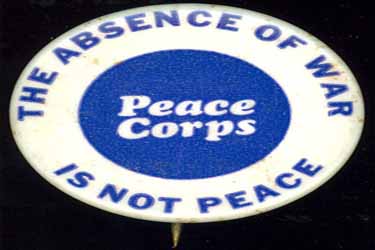Unfair Sacrifice: Female Peace Corps Volunteers Shouldn’t Have to Give Up Their Right to Health Care
Women serving our country should never have to face the tragedy of a sexual assault, but if they do, they should be able to access comprehensive health care and support services.

Serving in the Peace Corps is an amazing experience. I wouldn’t trade the two years I spent in a small village in rural Morocco for any other time. I regularly tout the virtues of the Peace Corps to colleagues and friends and regularly recommend volunteering to every young professional I meet. The personal and professional growth that comes from being a volunteer is invaluable, as are the long-standing relationships and memories of fun and adventure that any returned Peace Corps volunteer (RPCV) can recount.
Unfortunately, for many of us, these good memories are clouded by an instance of sexual assault.
One day, on a walk from the market-town to the village where I was living, I was approached and attacked by a man. Luckily, I was able to fight off my attacker and escape, mentally and emotionally shaken, but physically unharmed. When I reported this incident to my Peace Corps program officer, I was given very nice words of concern and sympathy, but nothing more. I was never asked if I needed medical attention or if wanted to report the attack to local authorities. There seemed to be virtually no protocol in place to address what had happened.
Having heard and seen my country office’s response to female volunteers who had not been as lucky as me to escape their attacker, I probably shouldn’t have been surprised. Several female volunteers who served with me were either sexually attacked, raped, or repeatedly sexually harassed. For most, the response was the same: expressions of concern from our country program staff, but few options other than to go home or to continue with service.
Sexual violence against women isn’t limited to developing countries; 1 in 3 U.S. women have experienced rape, physical violence, and/or stalking by an intimate partner in their lifetime. Overcoming sexual assault is always difficult, but it is made even more so if you do not have the right to make personal medical decisions and access comprehensive health care and support. Currently, U.S. women serving in the Peace Corps do not have these rights.
Since fiscal year 1979, annual appropriations acts have prohibited the Peace Corps from covering abortion services for its volunteers, even in cases of rape, incest, and life endangerment. Female volunteers are now one of the only groups of women receiving health-care services through the federal government who are denied coverage for these services.
The Peace Corps Equity Act of 2013, introduced Thursday by Sen. Frank Lautenberg (D-NJ), could help change all of that and bring fair and equitable medical care to thousands of female Peace Corps volunteers. Women serving our country should never have to face the tragedy of a sexual assault, but if they do, they should be able to access comprehensive health care and support services.
When I was given the honor of serving in the Peace Corps, I knew I would have to make sacrifices—no running water, no electricity, and no family or old friends anywhere nearby. But one thing I never thought I’d have to sacrifice was my access to comprehensive medical care. It’s been more than 15 years since my service, and since then, thousands of female volunteers have had to make that same sacrifice. Let’s not make future volunteers pay that price. Let’s give these women the same rights afforded everyone else who serves their country overseas.
